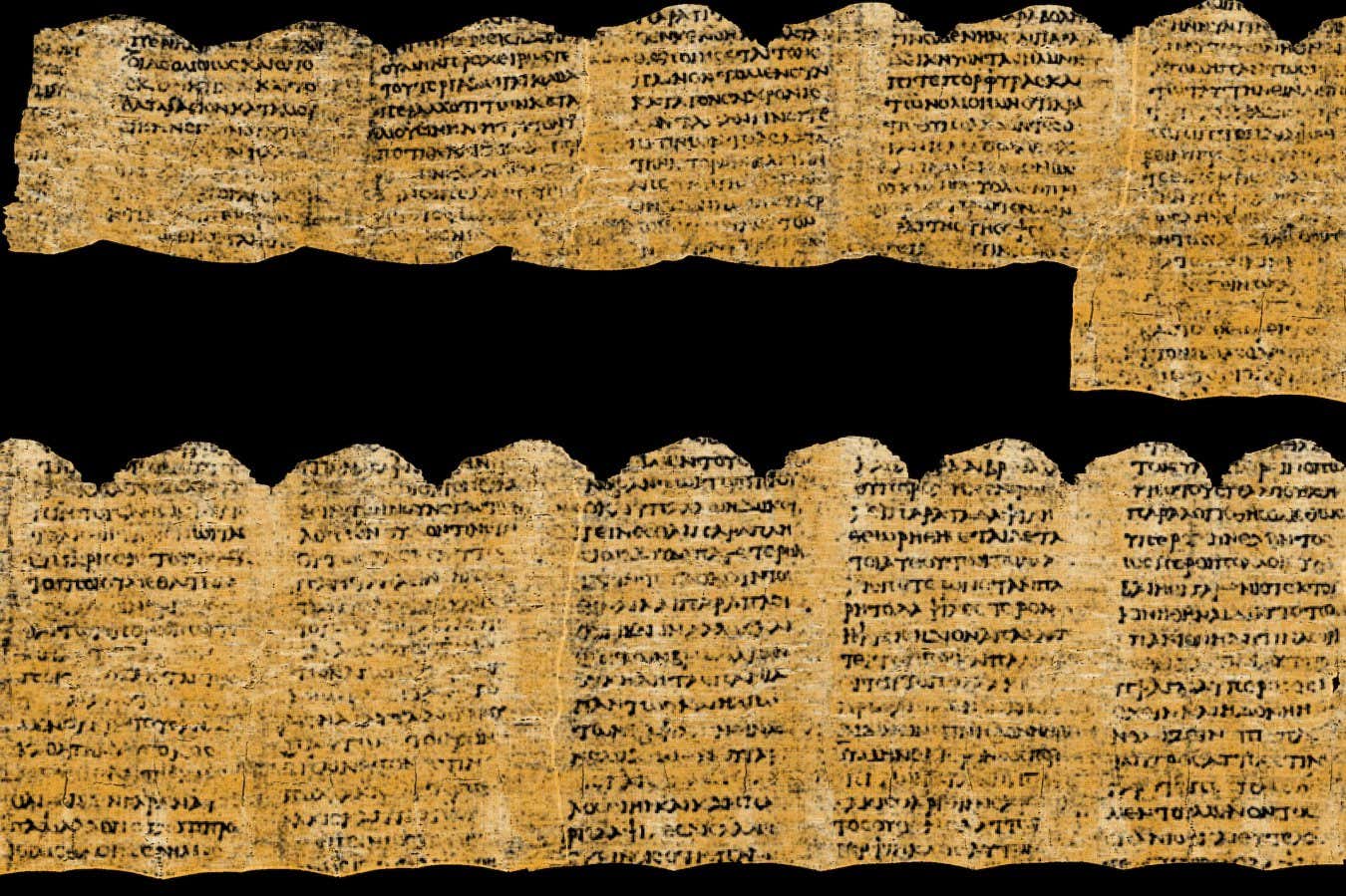A Greek philosopher’s musings on pleasure, contained in ancient papyrus scrolls buried by Mount Vesuvius’s eruption 2000 years ago, have been rediscovered with the help of AI
By Jeremy Hsu
5 February 2024
The winners of the Vesuvius Challenge grand prize used technology to decipher a damaged papyrus scroll
Vesuvius Challenge
Artificial intelligence has helped decipher an ancient papyrus scroll, which was transformed into a lump of blackened carbon by volcanic ash from Mount Vesuvius in AD 79. The first passages of readable text reveal never-before-seen musings from a Greek philosopher.
The discovery nabbed the $700,000 grand prize in the Vesuvius Challenge, and used a combination of 3D mapping and AI techniques to detect ink and decipher letter shapes within segments of scrolls known as the Herculaneum papyri, which had been digitally scanned. The combined efforts of the winning team members – Youssef Nader, Luke Farritor and Julian Schilliger – could pave the way for more discoveries from additional papyrus scrolls that were once housed in a library in the ancient Roman town of Herculaneum.
Read more
How the secrets of ancient cuneiform texts are being revealed by AI
Advertisement
“I think it’s going to be a huge boon to our knowledge of ancient philosophy, just gigantic – a staggering amount of new text,” says Michael McOsker at the University College London, who was not involved in the discovery.
The winning submission met the Vesuvius Challenge criteria of deciphering more than 85 per cent of characters in four passages consisting of 140 characters each – and as a bonus, it included another 11 columns of text for a total of more than 2000 characters.
